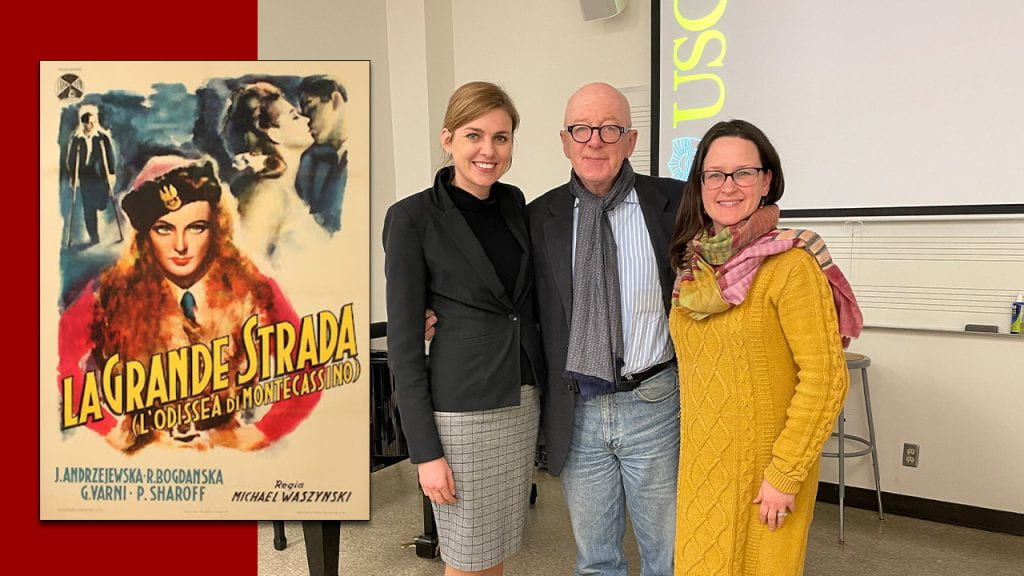On Monday, February 5, the PMC hosted Dr. Dorota Lekka, Head of the International Department at the National Film Archive – Audiovisual Institute in Warsaw. Dr. Lekka is currently visiting southern California with lectures and screenings of the 1946 epic film, Wielka droga, directed by Michał Waszyński.
Using documentary footage gathered by Waszyński in Soviet Russia, Middle East and southern Europe, the film skillfully blends a personal love story into the tragic narrative of the over one million Poles who were deported to the Soviet Union in the early years of World War II. However, as soon as Nazi Germany invaded its Soviet ally in June of 1941, some of the Polish deportees were able to leave the Soviet Union with the so-called Anders Army. The film’s title is taken from one of Gen. Anders’s speeches, in which he referred to the great odyssey of Polish refugees who fought for Poland’s independence on many fronts in the Middle East and Europe alongside their British and American allies. Read more about the story of the film here.
Finished at the Cinecittà studios in Rome in 1946, Wielka droga was first shown in Poland only in the late 1980s and televised nationwide in 1991, even though the National Film Archive obtained the original copy of the film from the U.S. in 1962. Thanks to the National Film Archive – Audiovisual Institute and its skilled technicians, the film has been recently digitally restored to the highest standards. Thus, this unique film—part historical record, part romantic drama—can now be enjoyed by the Polish-speaking public and is available for viewing at the National Film Archive’s website.
Music for this film was written by Henryk Wars (known in the US as Henry Vars) whose ensemble, Polish Parade, travelled alongside the Anders Army. Interestingly, some of the leading motifs from this film score found their way into Wars’s Piano Concerto, written in Hollywood in 1950. The manuscript of this work, alongside other items in the PMC’s Wars Collection, was shown to Dr. Lekka during her visit to the PMC.
The screening of Wielka droga at the USC Thornton School of Music was attended by, among others, Diana Eisele, and her screenwriter husband, Bob. Diana is the younger daughter of Roman Ryterband, a noted pianist and composer whose archives are also held at the PMC. As it happens, throughout the 1960s Ryterband appeared in several concerts in Chicago and Los Angeles with some of the former members of the Polish Parade ensemble.
The first LA-area showing of Wielka droga on Feb. 4 in Tujunga was organized at the Bolton Hall Museum for the Modjeska Art & Culture Club by its president, Dr. Maja Trochimczyk. The next screening of this film in San Diego on Feb. 10 is coordinated by Jerzy Barankiewicz, President of the Polish Art Salon in San Diego.
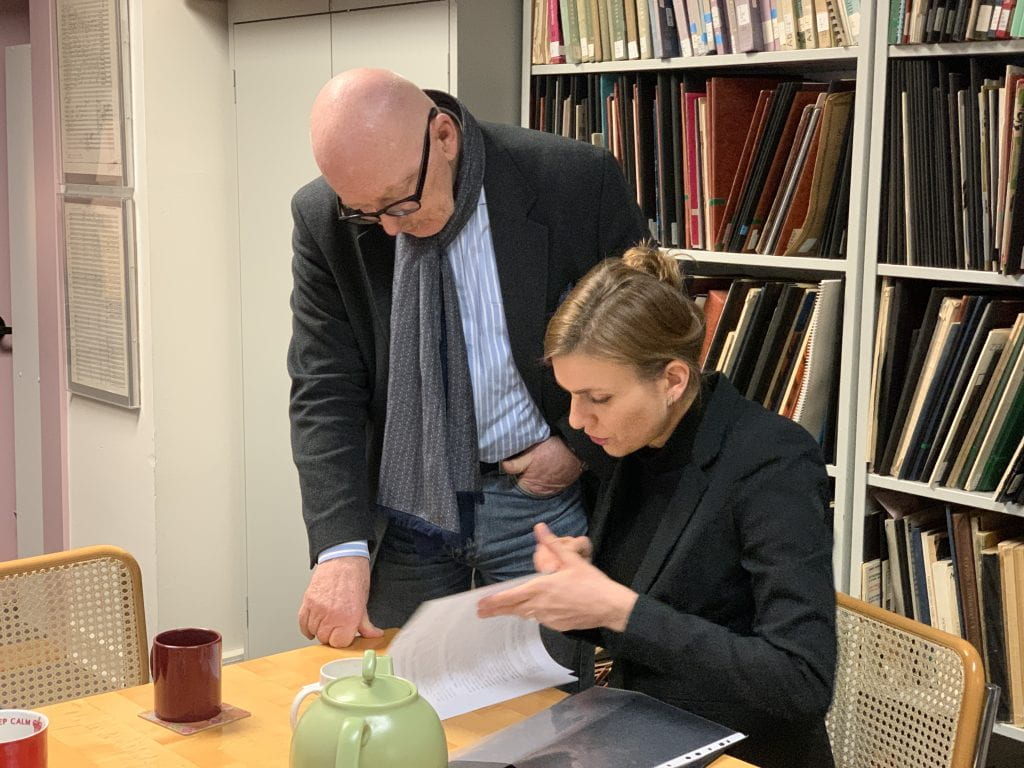
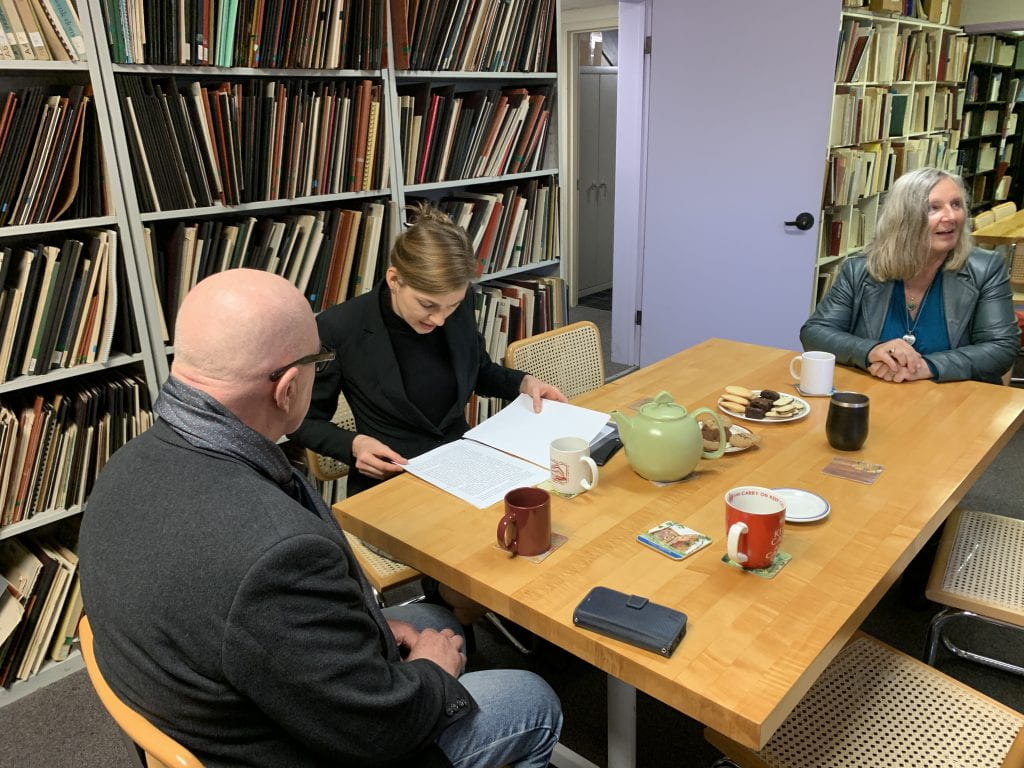
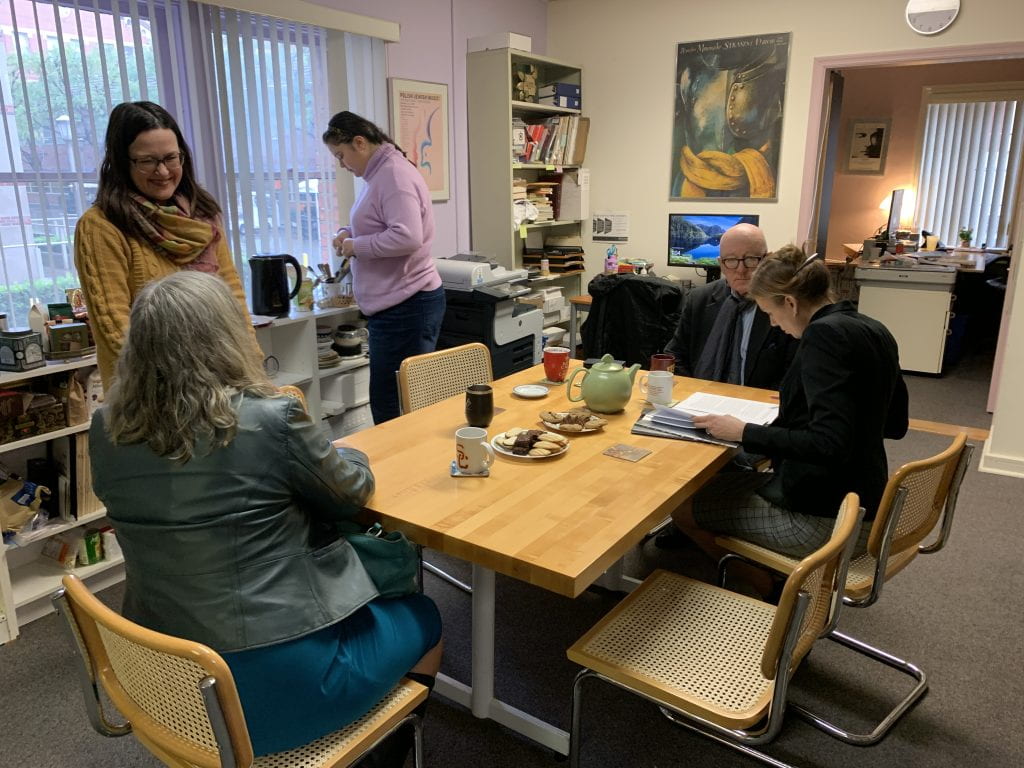
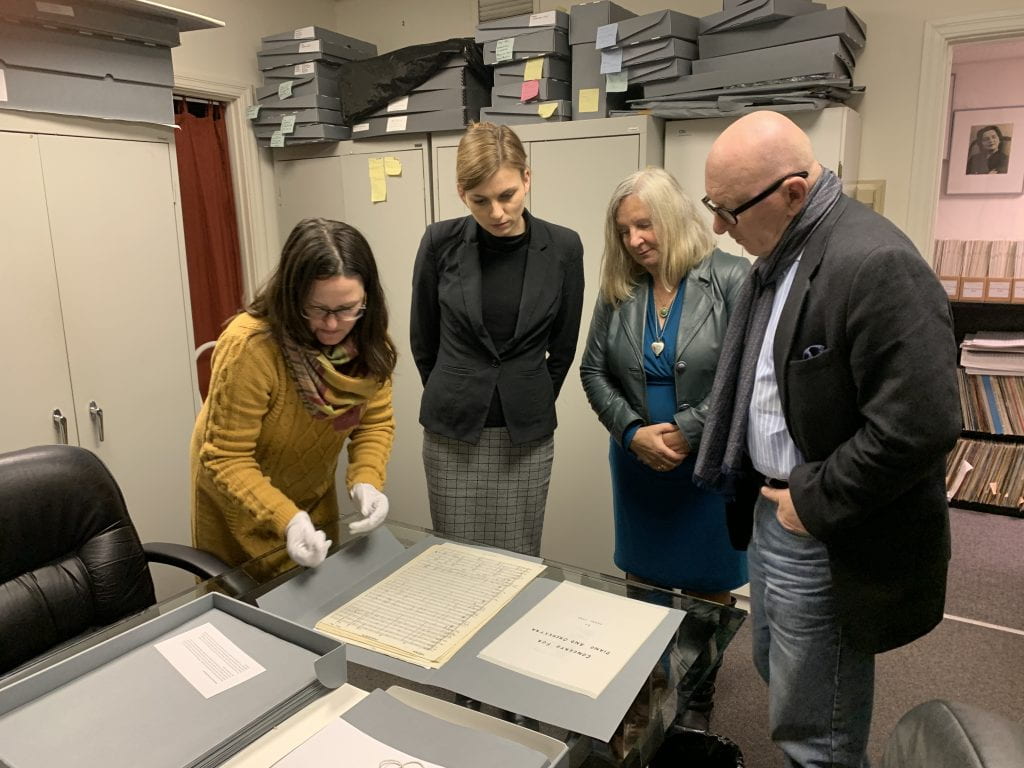
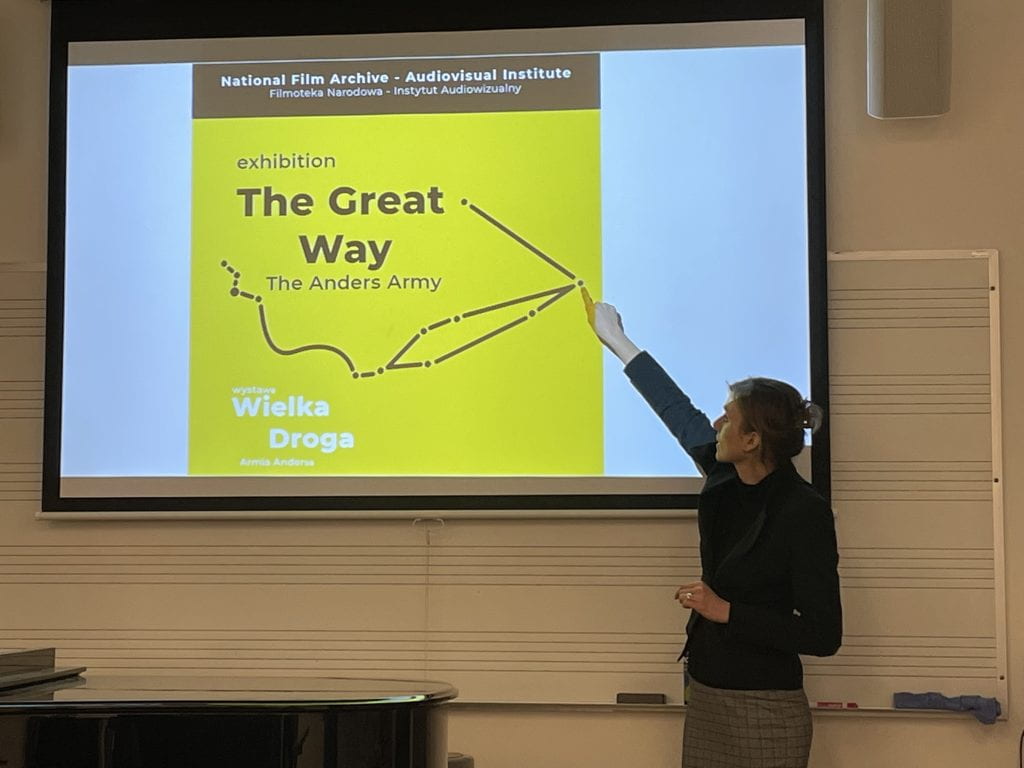
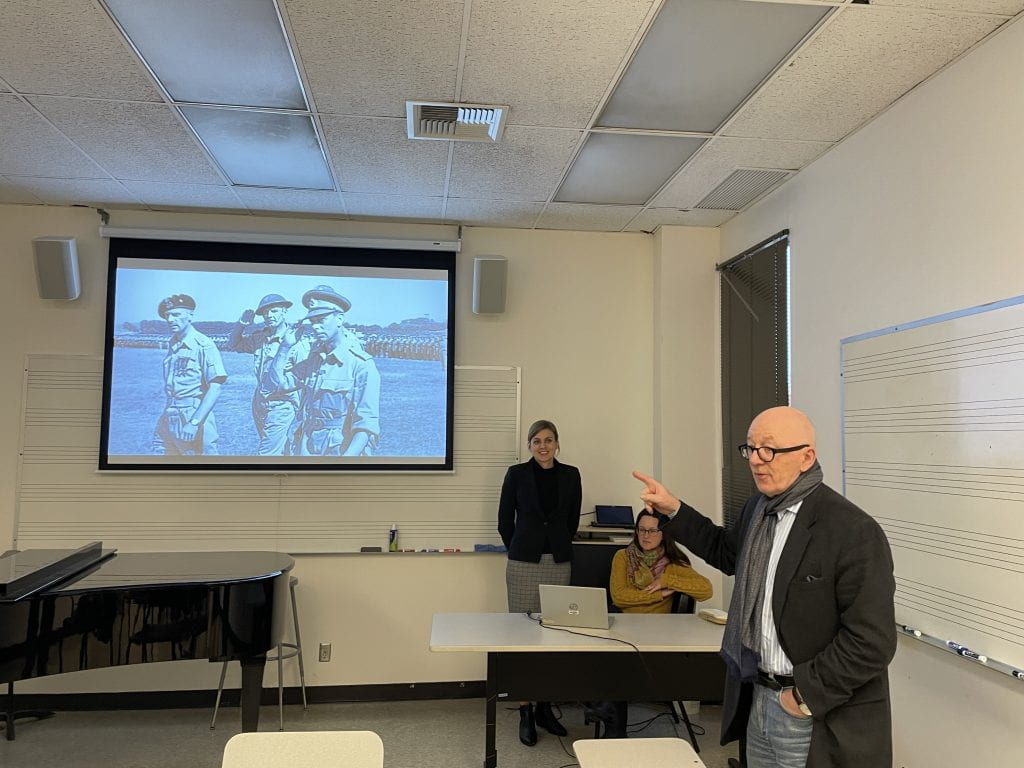
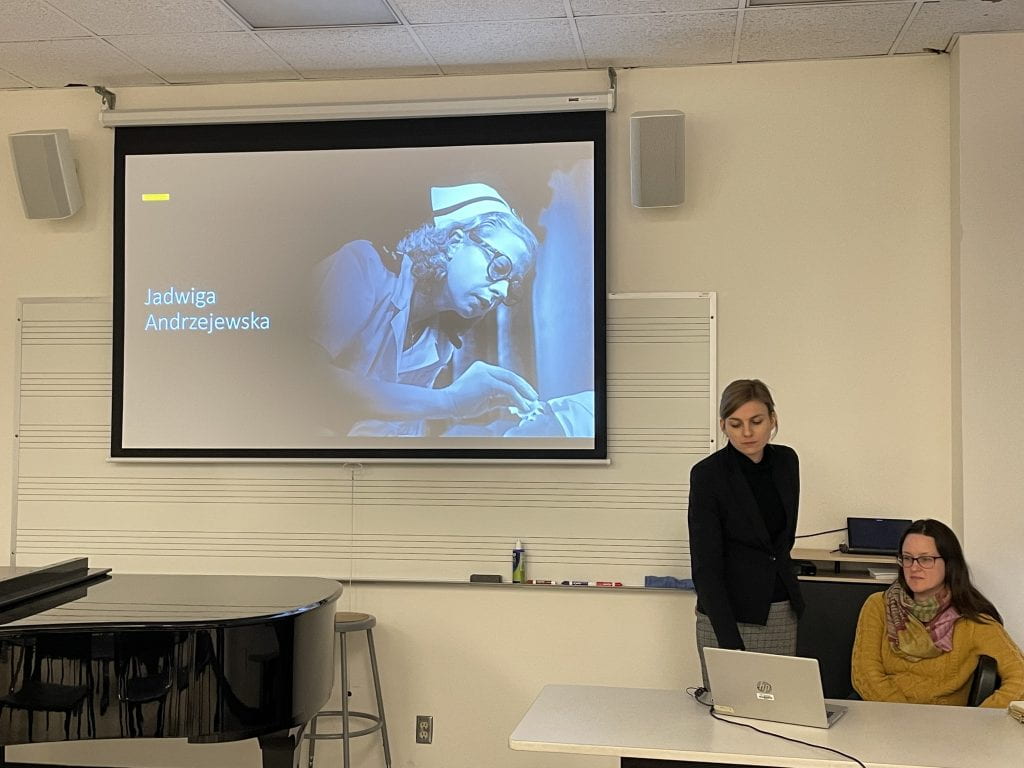
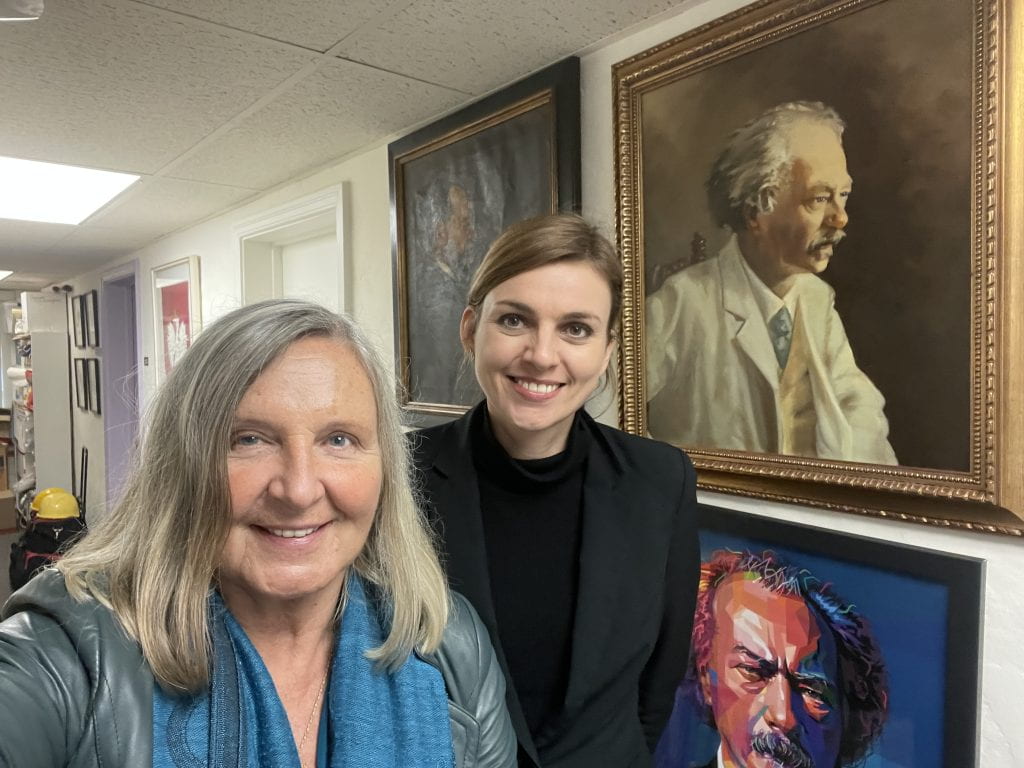
[Photo credits: Maja Trochimczyk & Tomasz Fechner]
